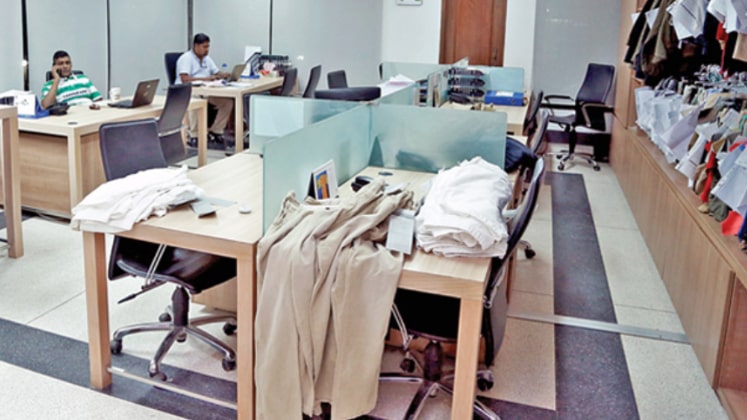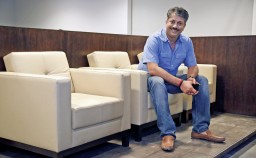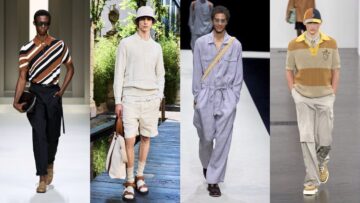
The initial three years of Asmara’s entry into Bangladesh in 2005, were comparatively slow for the company; however, with each successive year, this multinational buying group has accepted many challenges in its product offerings and ‘quick to market’ concept to get growth. Spread across all major sourcing destinations, such as Hong Kong, China, Indonesia, India, Bangladesh, Vietnam, Turkey, Cambodia, Sri Lanka and Pakistan, Bangladesh has done exceedingly fine for itself and by adding Tom Tailor business worth US $ 80 million a year to its US $ 90 million turnover expected this year. In an exclusive interaction with Apparel Online Manish Ojha, Country Manager, Asmara Bangladesh shares success and growth of Asmara Bangladesh riding on the challenges he encountered in his journey.

Established in the year 2000 in Indonesia, Asmara has today grown into a global sourcing organization in the areas of apparel as well as home products. Beginning small, with an office with four persons in the city of Bogor in Indonesia (about 50 km south of Jakarta), today has 1,100 professionals working at 10 locations worldwide.
Since the beginning, the culture top down has been concentrating on sourcing some very innovative styles, and Manish attributes it to the choice of vendors who are always willing to take up challenging products. “We are working for the customers from the inception of a style or a product, and in the process upgrade, the design understanding of the factories also; it’s all a part of relationships,” says Manish, who is working with over 30 suppliers. To increase Asmara’s business with each of its buyers, it tries to get challenging products which are new or rather complicated for Bangladesh or have challenging timelines and so far has been executed with success.
While its biggest accounts are for Abercrombie & Fitch which is growing so swiftly for Asmara that A&F division has now been shifted to a new building. For past 5 years, A&F is sourcing only vintage bottoms and jackets, and only now the brand has changed its order placement techniques; they now want to chase programs closer to windows. “We defused the situation by sourcing fabric locally for both denim and non-denim products,” shares Manish. The brand lately introduced a style called “Joggers” which is apparently doing very well for them with greater stretch options in garments. Since Asmara was asked to take up the program in Bangladesh, we were able to execute the program with two of our vendors. On similar lines, our client Marks, doing denims for men, asked for 12% stretch which is as good as female jeggings; it is a difficult product but we managed to get it done in Bangladesh,” cites Manish, agreeing to the fact that such special programmes fetches them premium price. Marks markets its products as ‘Clothes that work’ and majority of their flagship stores have a chamber where one can try out the jackets, reduce the temperature of the chamber to minus 40 degree and check whether the jackets work or not.
Diesel, a high-priced denim brand came up with a challenging development where the denim need not be washed unless it is soiled; it just needs to be kept in a refrigerator, hang it inside out, let the denim breathe and it’s ready to be worn again, this is what I call challenging. Bangladesh has cultivated the capabilities of producing such critical products,” says Manish
The increasing demand of products with new performance parameters and techniques adds spice to the job; this is how Manish feels about his work as a Country Head. “Diesel, a high-priced denim brand came up with a challenging development where the denim need not be washed unless it is soiled; it just needs to be kept in a refrigerator, hang it inside out, let the denim breathe and it’s ready to be worn again, this is what I call challenging,” says Manish who applauds Bangladesh for cultivating the capabilities of producing such critical products with special mention to his two major producers, Hameem and Standard Group.
Denim fashion is not about fashion but multiple fabrics; rather it is the multiple washes to give different look and feel to the same fabric. “Dynamite Garage (Groupe Dynamite), a Montreal-based company with two brands at the heart of its success, Garage and Dynamite, having around 300 stores worldwide, does 80% denims and all womenswear. In one of the super soft qualities, the company sources only 2 colours – indigo and black from us but with 7 washes. In indigo, we are doing super bleach to rinse and acid wash, so 5 ranges in this. And in black, we’re doing just black and acid wash and fabric is butter soft,” avers Manish.
Recently, Asmara has started working with a new German customer called Cecil doing 12 collections a year with motto – ‘Design Concept to Store in 100 days’… “The entire order is air freighted; if the salesman sample gets delayed by one day, the style is rejected. There is no room for negotiations. But the fun part is, we started with them in December last year and within 8 months, we’ve reached US $ 5 million turnover with them, only in knits. It is a very challenging yet interesting business,” states Manish, who after 2½ years stint in India, moved to Bangladesh by joining Shanta Group and spent over 8½ years with the company, and then joined Asmara in 2008; challenges is what motivates him!






